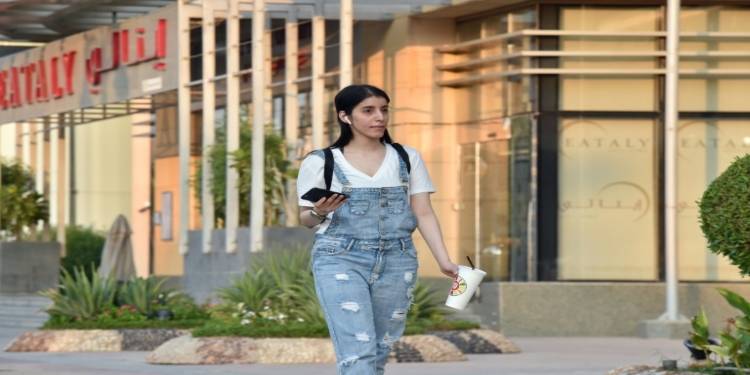
Saudi Arabia has formally charged Manahel al-Otaibi, a women's rights activist who has been in detention since November, with initiating a "propaganda campaign" through her activities on social media, according to court documents.
The charges against her are related to her outspoken criticism of the country's male guardianship laws and the requirement for women to wear the traditional abaya, a body-shrouding garment.
Public prosecutors have accused al-Otaibi of leading a campaign that aims to incite Saudi girls to reject religious principles and rebel against the customs and traditions of Saudi society, as stated in the documents. In January, she appeared before judges and was subsequently referred to the Specialised Criminal Court (SCC), which was established in 2008 to handle terrorism-related cases but has been widely used to try political dissidents and human rights activists.
At present, al-Otaibi has not been convicted or sentenced, and no date has been announced for her hearing, which could potentially result in a lengthy prison term. Al-Otaibi's sister, Fouz, who has left Saudi Arabia, also faces similar charges and risks imprisonment if she returns to the kingdom.
Fouz expressed her criticism of the authorities, highlighting the targeting of influential women who demand women's rights in Saudi Arabia. She drew attention to the contradiction between the progressive Vision 2030 agenda, which has introduced significant reforms in the deeply conservative kingdom, such as granting women the right to drive and promoting women's participation in sports, and the persistence of strict rules enforced by certain sectors of society.
While Saudi Arabia has witnessed notable changes in recent years, it continues to face criticism for its intolerance of dissent. The country has garnered international attention for imposing lengthy prison sentences on women who have posted critical content about the government on social media platforms. Human rights organization ALQST, based in London, condemned the charges against the al-Otaibi sisters as yet another example of Saudi Arabia's failure to deliver on promised reforms.
Lina al-Hathloul, the head of monitoring and communications at ALQST, stated that Saudi women still face imprisonment and sham trials merely for advocating for their rights. The situation highlights the ongoing challenges faced by activists striving for gender equality in the country.
The charges against her are related to her outspoken criticism of the country's male guardianship laws and the requirement for women to wear the traditional abaya, a body-shrouding garment.
Public prosecutors have accused al-Otaibi of leading a campaign that aims to incite Saudi girls to reject religious principles and rebel against the customs and traditions of Saudi society, as stated in the documents. In January, she appeared before judges and was subsequently referred to the Specialised Criminal Court (SCC), which was established in 2008 to handle terrorism-related cases but has been widely used to try political dissidents and human rights activists.
At present, al-Otaibi has not been convicted or sentenced, and no date has been announced for her hearing, which could potentially result in a lengthy prison term. Al-Otaibi's sister, Fouz, who has left Saudi Arabia, also faces similar charges and risks imprisonment if she returns to the kingdom.
Fouz expressed her criticism of the authorities, highlighting the targeting of influential women who demand women's rights in Saudi Arabia. She drew attention to the contradiction between the progressive Vision 2030 agenda, which has introduced significant reforms in the deeply conservative kingdom, such as granting women the right to drive and promoting women's participation in sports, and the persistence of strict rules enforced by certain sectors of society.
While Saudi Arabia has witnessed notable changes in recent years, it continues to face criticism for its intolerance of dissent. The country has garnered international attention for imposing lengthy prison sentences on women who have posted critical content about the government on social media platforms. Human rights organization ALQST, based in London, condemned the charges against the al-Otaibi sisters as yet another example of Saudi Arabia's failure to deliver on promised reforms.
Lina al-Hathloul, the head of monitoring and communications at ALQST, stated that Saudi women still face imprisonment and sham trials merely for advocating for their rights. The situation highlights the ongoing challenges faced by activists striving for gender equality in the country.

